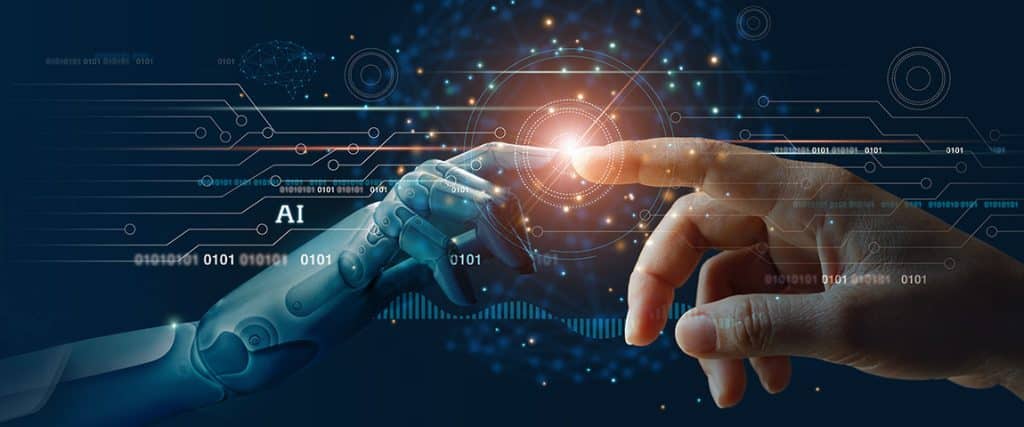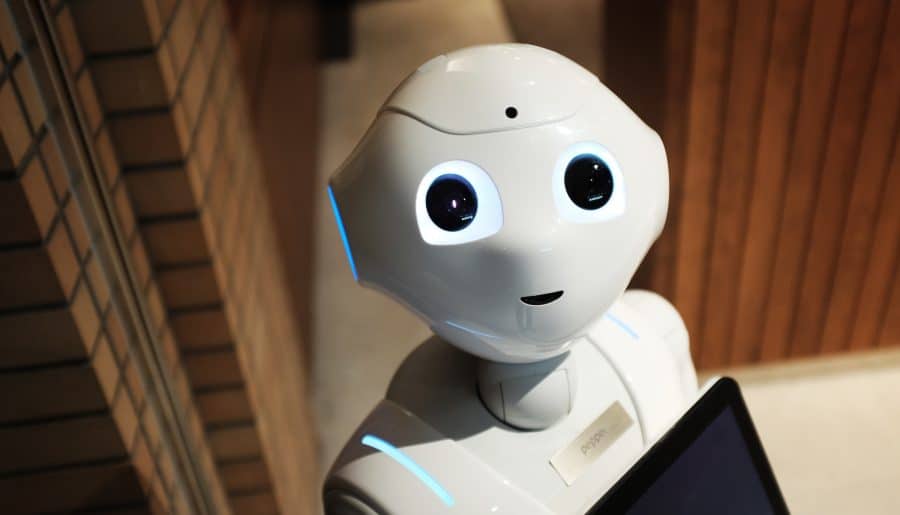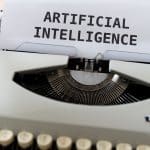In today’s world, the advancement in technology has been evolving rapidly over the years.
From electricity, automobiles, roadways, infrastructures, robotics, and the internet to smartphones (among others), technology has contributed so much to our convenience and has been a part of our daily lives.
Undoubtedly, technology plays an essential role in our society today, and this evolution has made impactful changes that improve our world.
With the recent innovations, there’s one that’s been gaining popularity and is everywhere nowadays—Artificial intelligence (AI).

Artificial intelligence, or AI, is the controlled computer or robot’s ability to perform tasks typically done by humans, including learning, problem-solving, and processing language. Simply put, AI is a computer’s ability to think and learn like humans.
There are two categories of Artificial intelligence: weak AI and strong AI.
Weak Artificial intelligence, or narrow AI, is designed and trained to perform and complete a specific task.
- Chatbots
- Virtual smart assistants, such as Amazon’s Alexa and Apple’s Siri
- Google Maps
- Weather apps
- Email spam filters
- Autocorrect
On the other hand, Strong artificial intelligence, or Artificial general intelligence, has a human-like consciousness. As a result, it can behave, solve problems, and learn new skills like a human. It can also handle a range of complex tasks like a human without a person intervening or inputting data.
This type of artificial intelligence can often be found in self-driving cars or robots, especially in hospital operating rooms.
So how does AI work?
Generally, AI systems perform intelligent searches, combine large amounts of data found, analyze it for patterns and correlations, and then act on those learnings.
Finally, it uses these patterns that allow the software to learn automatically and make predictions about how to use them in the future through specifically designed algorithms.
We can all agree that Artificial intelligence is everywhere right now. It’s often used in various applications, from maps and navigations like Google Maps to personal assistants like Alexa and Siri, ChatGPT, Jasper Chat, facial detection, and chatbots.

However, its impact on society is widely debated. Many argue that AI is advantageous because it can improve the quality of everyday human life by doing complicated tasks efficiently. Others also believe it can be used in different sectors and industries, including finance and healthcare.
However, some critics fear that using artificial intelligence can have a negative effect on society as it poses privacy risks and mass unemployment concerns. They also state the fear of super-intelligence (just like in Terminator movies) that we won’t be able to control AI systems if they get too smart.
So how do we know if artificial intelligence will change our society for good or bad?
Let’s dive deep into the pros and cons of using artificial intelligence and have a closer look at the key arguments to help you decide for yourself.
There is a poll at the end where you can vote and comment on this important debate question.
Pros of Artificial Intelligence
Reduces Human Error
Let’s be honest. Humans make mistakes from time to time. This could be because of many factors, including fatigue and distraction. Computers or artificial intelligence, however, do not if properly programmed.
So using AI can make decisions based on the previously gathered information and patterns in a certain set of algorithms. This way, greater accuracy and precision with fewer errors are most likely guaranteed.
Provides 24/7 Service
Unlike humans, who can work 4 to 6 hours daily, AI programs don’t need to take breaks or sleep, or get bored and distracted, thus providing 24/7 service.
As long as the power is turned on, artificial intelligence can run consistently 24 hours a day and seven days a week without needing a break.
Helps in Repetitive Jobs
AI excels at performing repetitive tasks efficiently and multitasking, saving labor and increasing a person’sperson’s productivity.
Instead of doing mundane yet repetitive tasks, a person can focus more on important tasks or spend their time on their creative pursuits. This will help people in having better work and life balance.
Takes the risk instead of humans
AI can do hazardous tasks for us, so there would be fewer accidents or other disasters. Risky situations could be defusing bombs, exploring the ocean floor, flying into space, mining for oil and coal, etc.
Faster Decisions
Unlike humans, that may be guided by bias, emotions, or subjective attitudes when making decisions, Artificial Intelligence bases its decisions on facts and patterns in big data. In turn, it helps make better decisions and delivers the results faster as it’s programmed.
Cons of Artificial Intelligence
Expensive
Since artificial intelligence simulates human intelligence, it will require advanced software, hardware, and machine that are quite expensive to develop. Moreover, it will need constant updating, repairing, and maintenance, which will cost plenty.
Lacks creativity
Since AI is programmed to do specific tasks, it cannot think outside the box or develop innovative or new ways to solve a problem like a human does.
It also lacks human emotion and connection, which is often essential to creativity.
Reduces employment
Instead of hiring people to perform repetitive tasks and other manufacturing jobs, some industries or organizations may replace individuals with Artificial intelligence or AI robots that can do similar work more efficiently and faster.
This can lead to widespread job loss and long-term unemployment.
Makes People Lazy
Since AI provides excellent technology to make life much more convenient and easier, it may result in humans becoming lazy.
One example of an accurate portrayal of what AI can do is the movie Wall-E. (You should definitely watch it if you haven’t yet). Unfortunately, because robots and technology can do and provide everything, people live driven by comfort but have become lazy.







